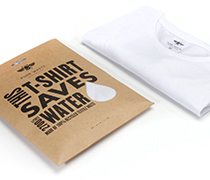Finnpartnership
Pure Waste turns textile waste into business in India
 Pure Waste Textiles is creating a production model in India to turn textile waste into new products. The company has received Finnpartnership's assistance for preparing the new business model.
Pure Waste Textiles is creating a production model in India to turn textile waste into new products. The company has received Finnpartnership's assistance for preparing the new business model.
The business idea for recycling the surplus materials from textile industries came about when a group of Finnish clothing professionals launched the Costo brand in 2006. In 2013, the team founded Pure Waste Textiles Oy and started investigating potential uses for textile waste from the tricot industry in Tamil Nadu, a southern province in India and one of the world's major producers of tricot fabrics.
Finnpartnership provided business partnership support to help Pure Waste identify potential partners and develop its business model. The company also took advantage of other Team Finland services, namely the funding offered by Tekes for international growth plans.
Pure Waste only uses 100% recycled materials. The end products must be high quality yet competitively priced.
Production plant built by Pure Waste's Indian partner outside the city of Coimbatore opened in early 2016. At the plant, textile waste is processed into fibres and spun into thread. Recycled materials are turned into finished garments at the nearby sewing shop owned by an Indian partner.
At the same time, Pure Waste is looking for markets for its Indian-made products. Although some textile manufacturers are only interested in buying recycled fibre material, Pure Waste is also well placed to start supplying thread, fabric and even finished garments to international brands.
Textile waste recycling has plenty of potential. The world's population is growing, and not enough cotton and other raw materials can be produced to meet the demand. We have no choice but to increase the use of recycled materials. Currently, only about fifteen per cent of the world's textile waste is reused.
Own production plant will give the company proper oversight of environmental and social responsibility in its Indian business. The plant will employ approximately 200 local people. The plant is located in a poor rural area, where jobs offered by responsible employers are vitally important.
It is important to ensure that the production does not contaminate or deplete the area's already sparse natural resources. The plant is located in an area of low rainfall, which is why it has a rainwater collection system. The intention is to cover some of the energy consumption needs with solar power and methane produced from toilet waste. The company also has plans to support local communities by offering funding for sustainable development projects from a separate Pure Waste Fund to be set up.
See Pure Waste Textile's YouTube video "Making of Slush T-shirt"
Photo: Pure Waste Textiles "This T-shirt saves 2700 litres water"

